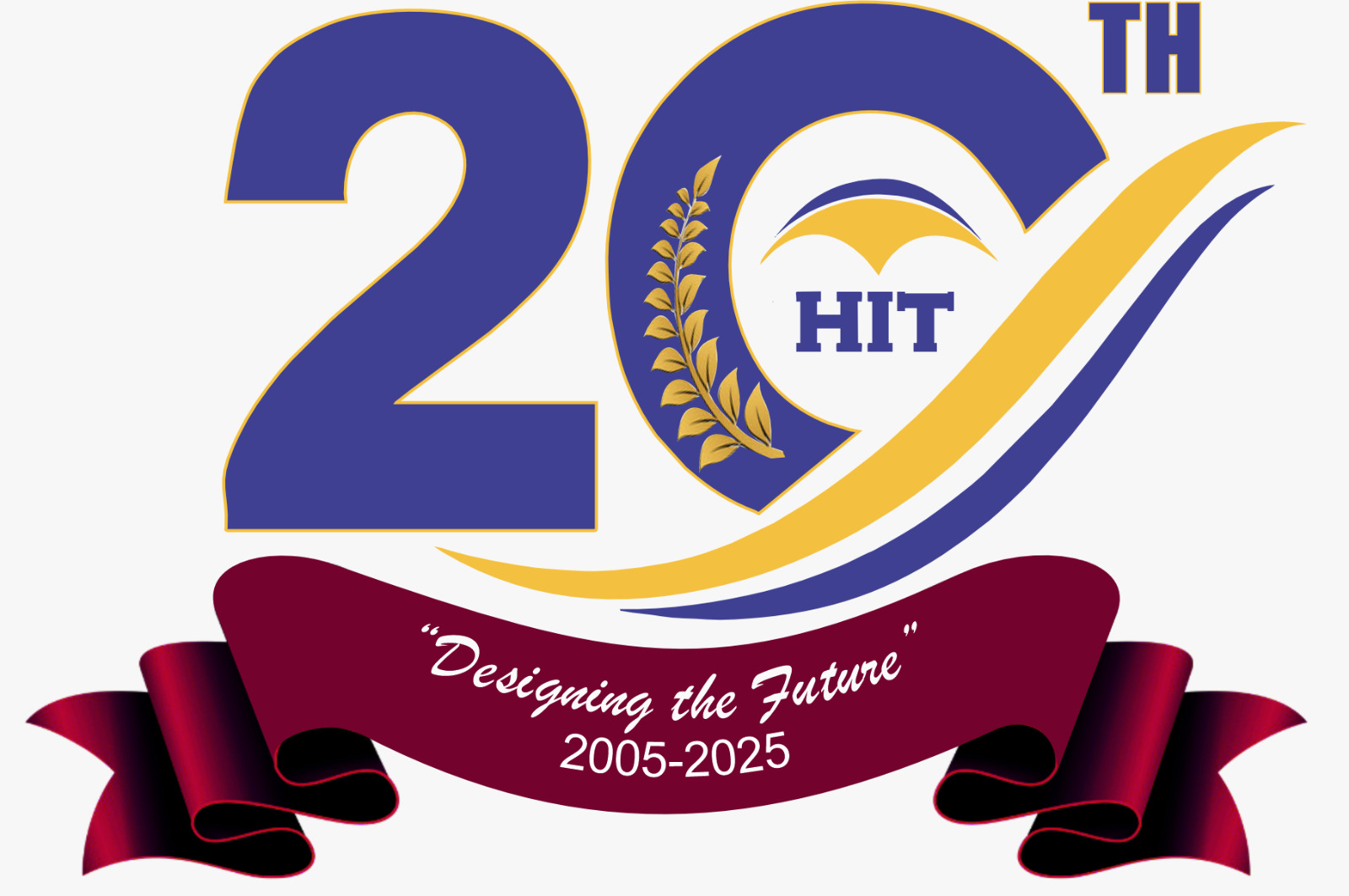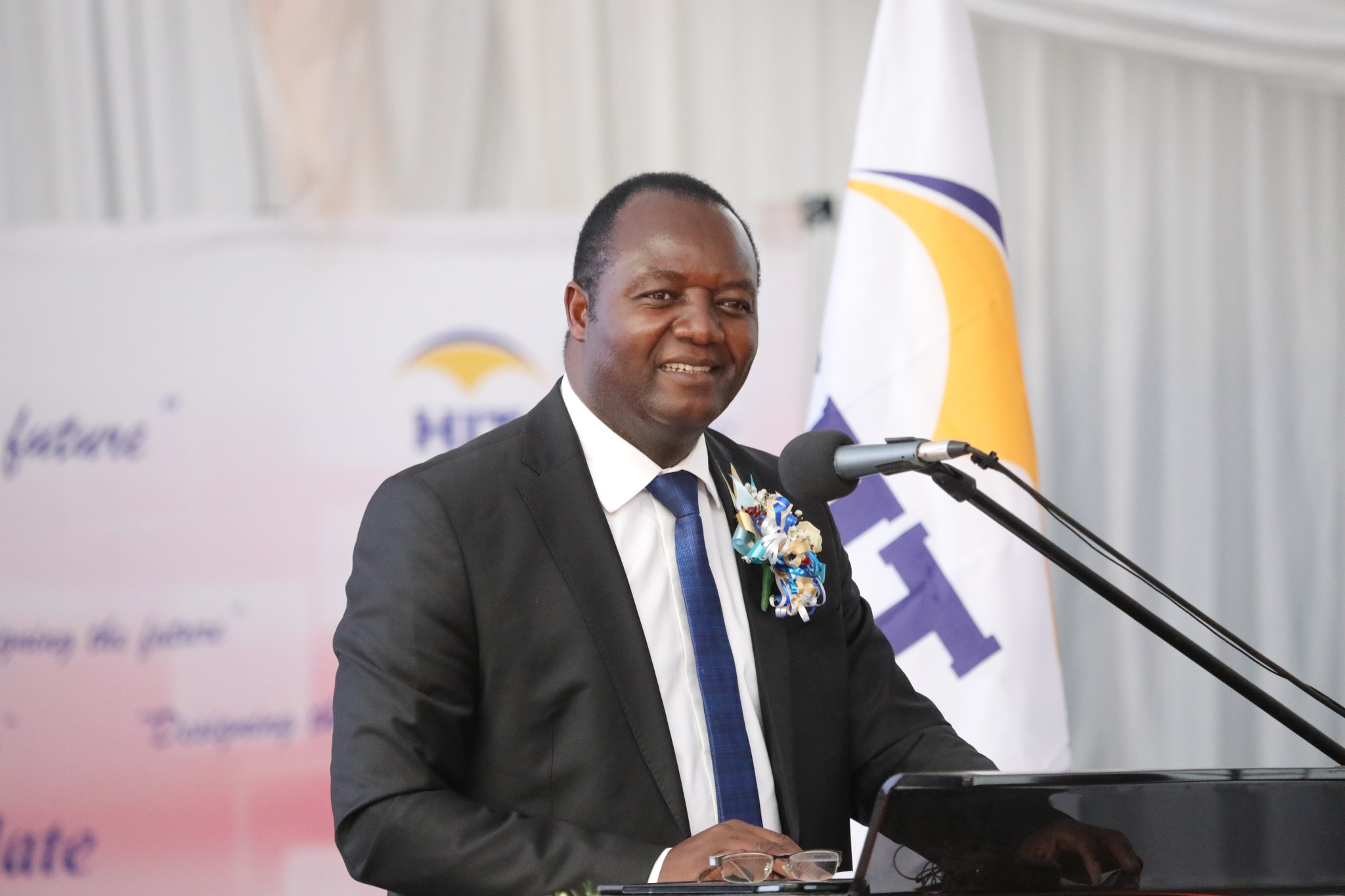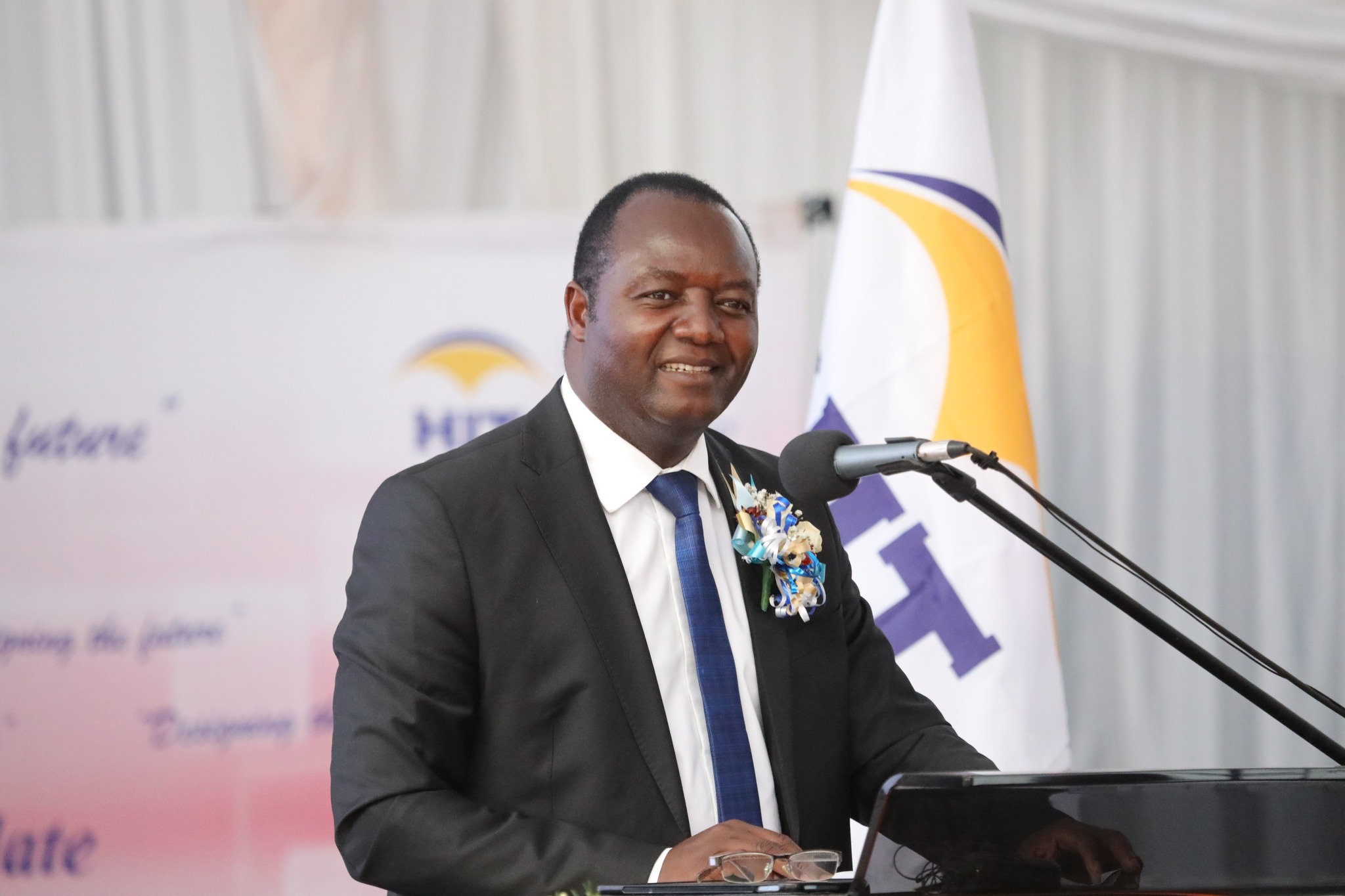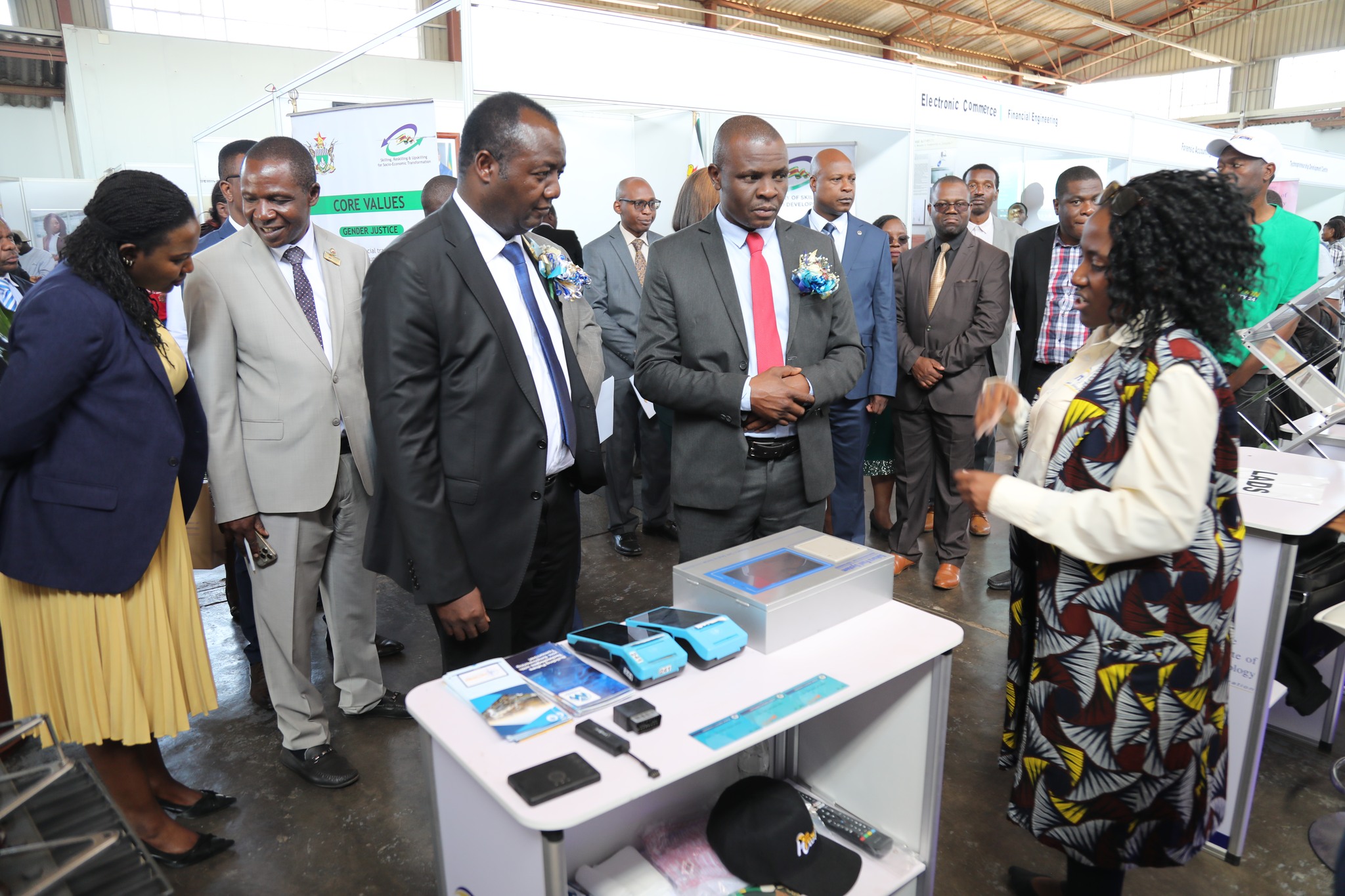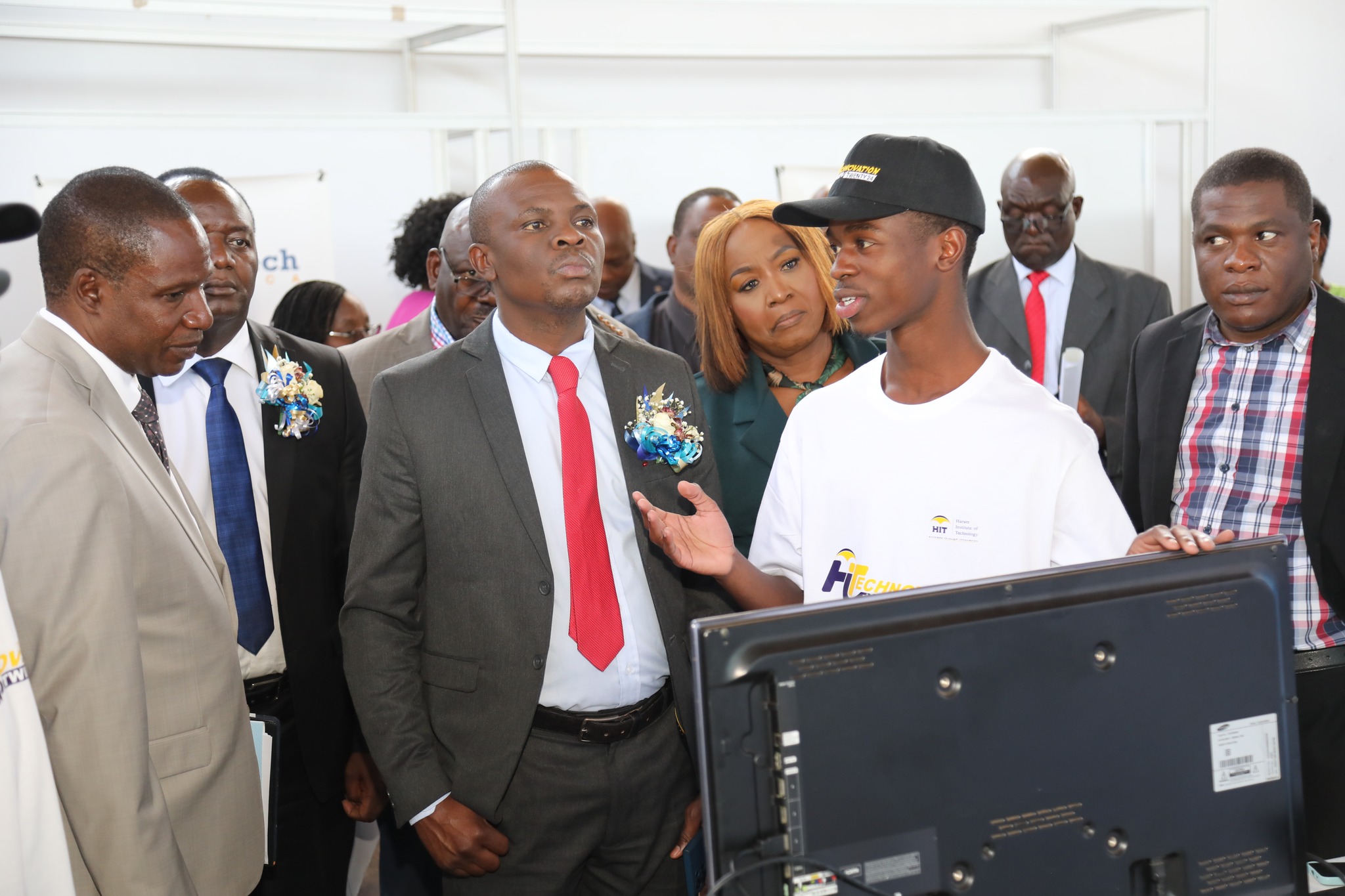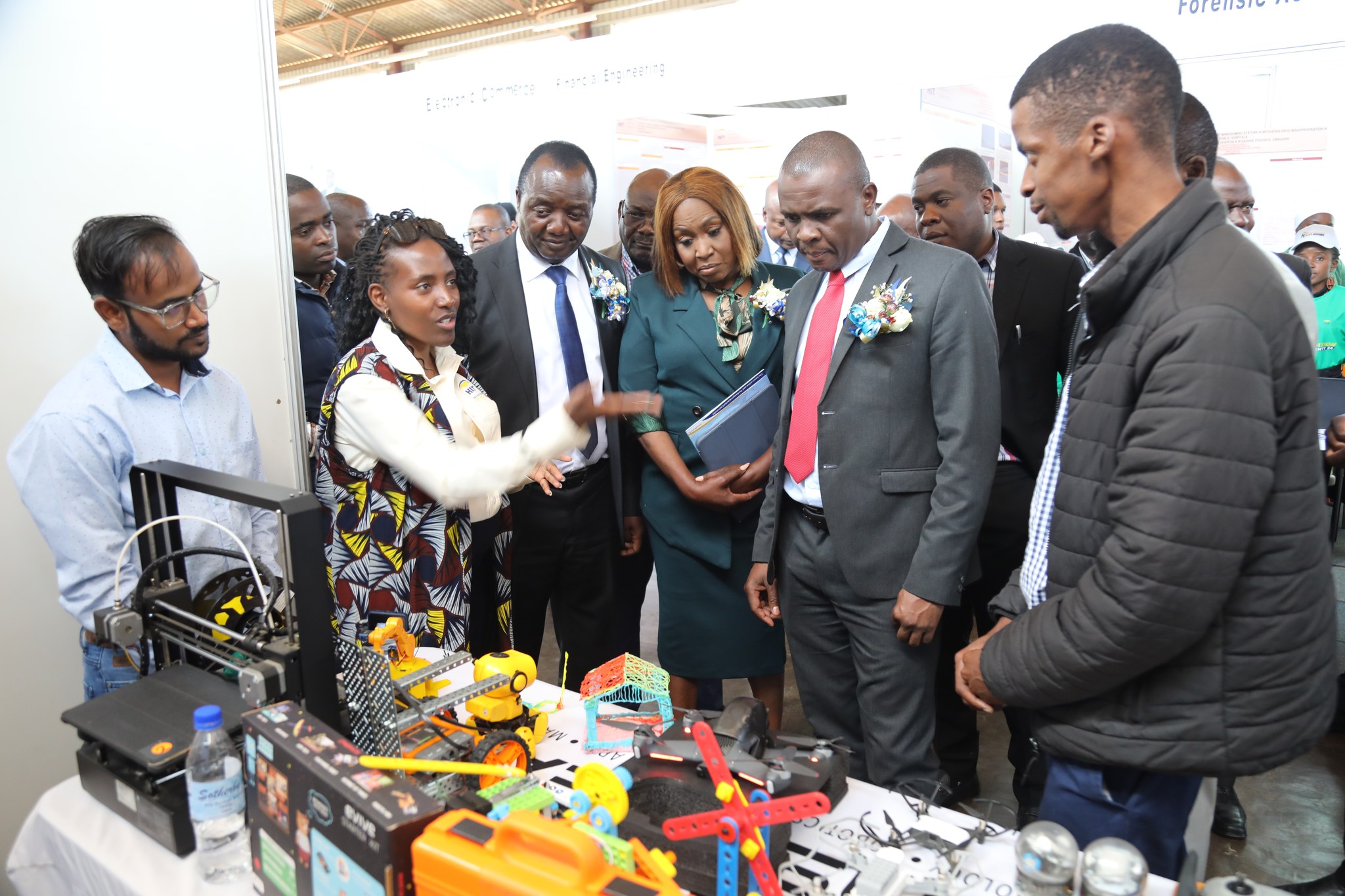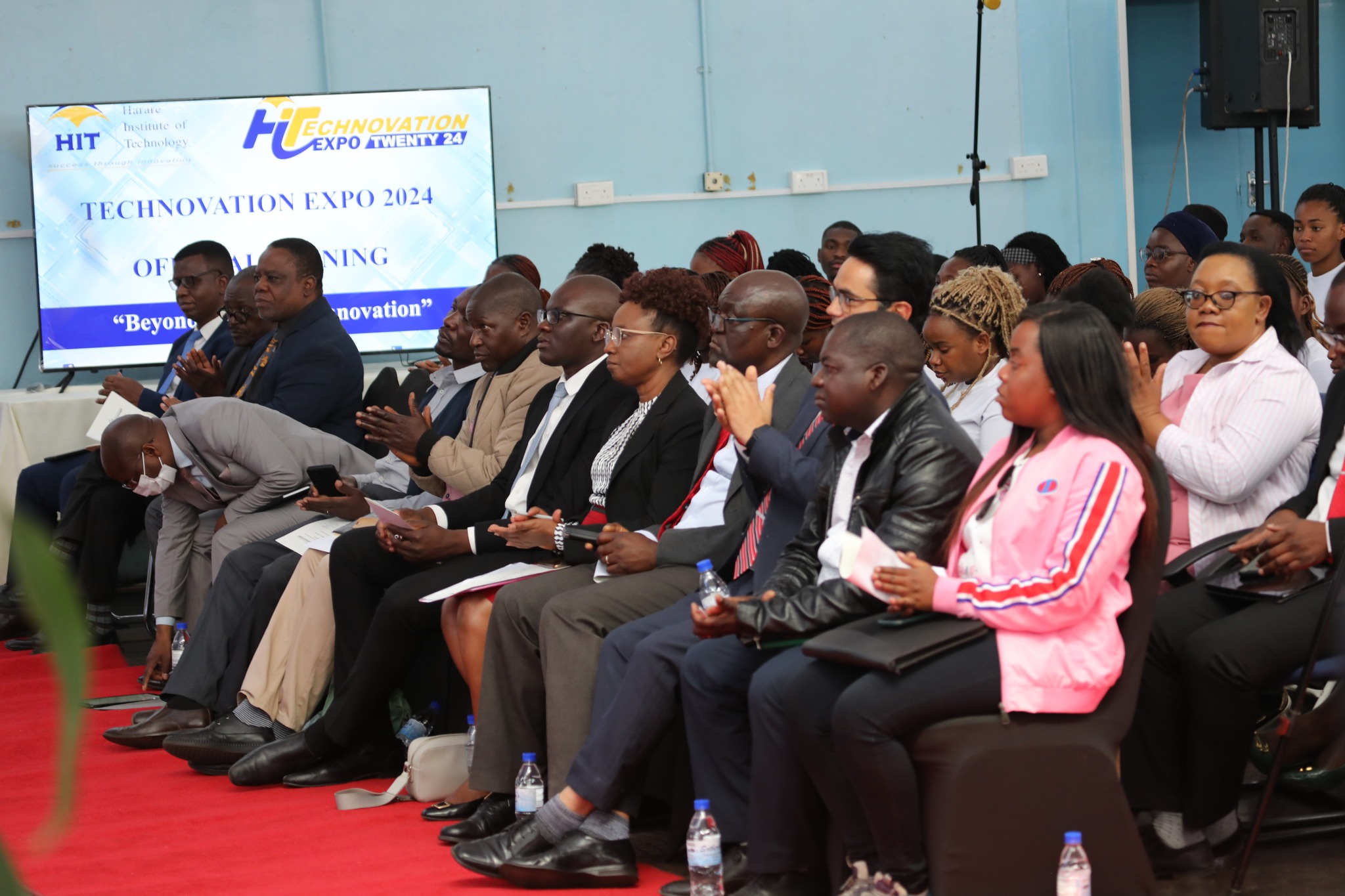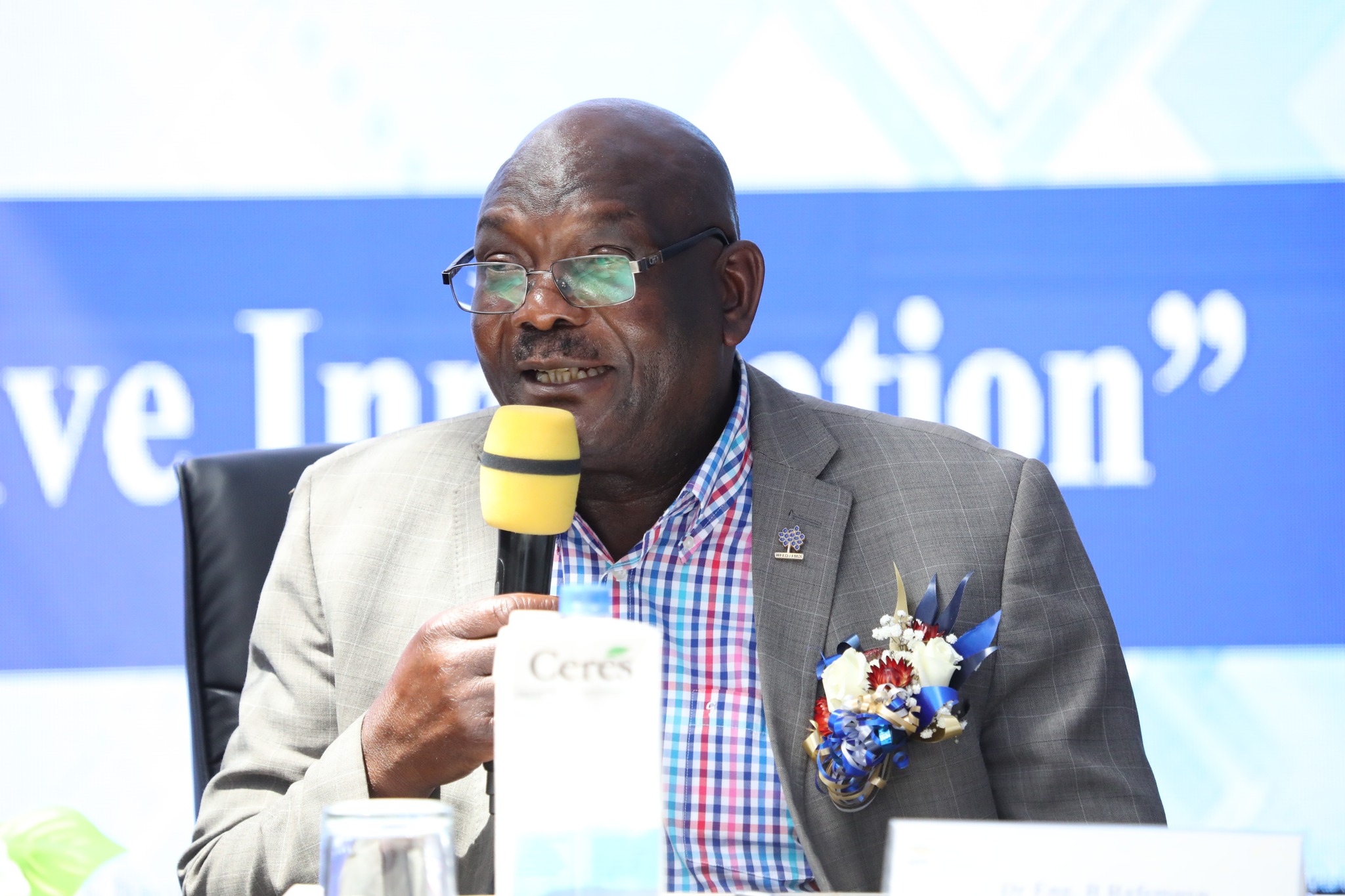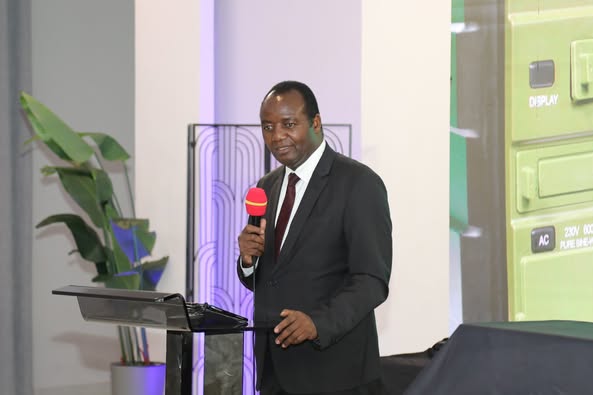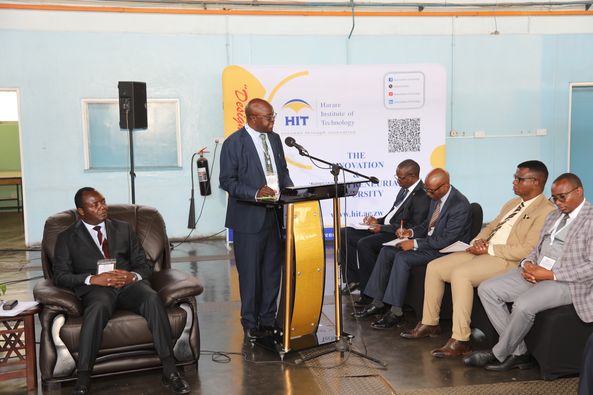On a momentous occasion at the Harare Institute of Technology (HIT), Vice Chancellor Professor Engineer Quinton Chamunorwa Kanhukamwe delivered an Inaugural Professorial Public Lecture titled “The Role of Universities in Establishing a Fourth Industrial Revolution-Driven Economy,” at the Official Opening of the Technovation Expo 2024.
The event, running from September 3rd to 7th at HIT’s Belvedere campus, gathered academics, policymakers, industry leaders, and students, all poised to explore how educational institutions can lead Zimbabwe and Africa into an era dominated by technological advancements.
The HIT Vice Chancellor opened the lecture by harkening back to the historical context of industrial revolutions. He explained that while the First Industrial Revolution ushered in mechanization, subsequent revolutions introduced mass production, digital technologies, and now, the Fourth Industrial Revolution (4IR), driven by the integration of artificial intelligence (AI), the Internet of Things (IoT), and biotechnology among others. “The 4IR is characterized not only by speed and scale but by its potential to fundamentally transform every sector of our economy,” he remarked.
Addressing the vital contribution of universities, Professor Kanhukamwe outlined the transition from traditional roles centred on knowledge preservation and dissemination to more dynamic functions. He asserted that universities must evolve into centres of innovation, collaboration, and entrepreneurship, emphasising the importance of interdisciplinary research. “As we grapple with the complexities of the 4IR, fostering environments that encourage collaboration across various fields is essential,” he said.
Amidst the vast potential the 4IR holds, the Vice Chancellor also drew attention to the ethical implications arising from rapid technological advancements. In a world where AI and big data pervade daily life, he stressed that universities should act as ethical guides, ensuring the responsible integration of technology into society. “We must engage in discussions surrounding privacy, bias, and the societal impacts of these technologies,” he implored, pointing to the significance of embedding ethics within STEM curricula.
Highlighting current initiatives at HIT, Professor Kanhukamwe revealed the establishment of a new Centre for Artificial Intelligence aimed at harnessing technological potential in Zimbabwe. “Our goal is to bridge educational gaps and prepare students to excel in a quickly evolving job market,” he mentioned, reinforcing HIT’s commitment to leading the charge in 4IR readiness.
The HIT Vice Chancellor’s lecture also drew comparisons with international institutions excelling in 4IR research, such as the Massachusetts Institute of Technology (MIT) and Tsinghua University, emphasising the necessity for African universities to enhance their research infrastructure and collaborative networks. Recognising that many African universities, including those in Zimbabwe, face unique challenges such as outdated technology and high operational costs, he advocated for proactive investments in digital literacy and curriculum development to successfully navigate the 4IR landscape.
Professor Eng. Q.C. Kanhukamwe concluded his address with a call to action. He urged universities to adopt strategic approaches in their mission that include investing in state-of-the-art research, adapting educational programmes for 21st-century skills, fostering entrepreneurial spirit among students, and committing to ethical practices in technology application. “It is our collective responsibility to not only respond to change but to actively shape it, ensuring our contributions benefit all of humanity,” he declared.
The lecture was met with enthusiasm, sparking engaging discussions among attendees about the future of educational institutions in the context of the Fourth Industrial Revolution. The dialogue around the potential of universities as catalysts for innovation and economic growth remains fervent – a fitting demonstration of the promise the 4IR holds for Zimbabwe and the wider African continent.
As the Technovation Expo 2024 unfolds, it is clear that the road ahead, while laden with challenges, offers unprecedented opportunities for growth and transformation, underscoring the importance of adaptive and forward-thinking educational frameworks. With the right strategies and commitment, HIT is poised to lead the charge into this transformative era.
The event was graced by the Deputy Minister for Higher and Tertiary Education, Innovation, Science and Technology Development, Honourable Simelisizwe Sibanda, who was the Guest of Honour, HIT Board Chairperson and Deputy Chairperson Dr Grace Taruvinga and Dr Engr. Ben Rafemoyo, respectively, the Chief Executive Officer for the Zimbabwe Council for Higher Education (ZIMCHE) Professor K. Dzvimbo and other delegates from other local universities and tertiary institutions, government agents, industry and commerce.
The HIT Vice Chancellor Prof Q.C. Kanhukamwe later led the Deputy Minister, HIT Board members including other delegates on a tour of the exhibitions by HIT’s various departments, start-ups and spinoffs.

